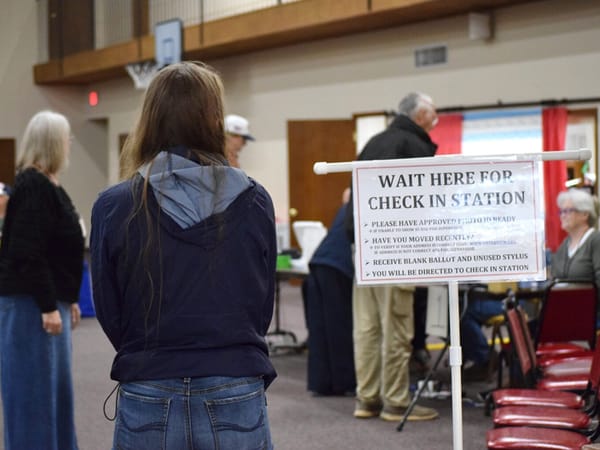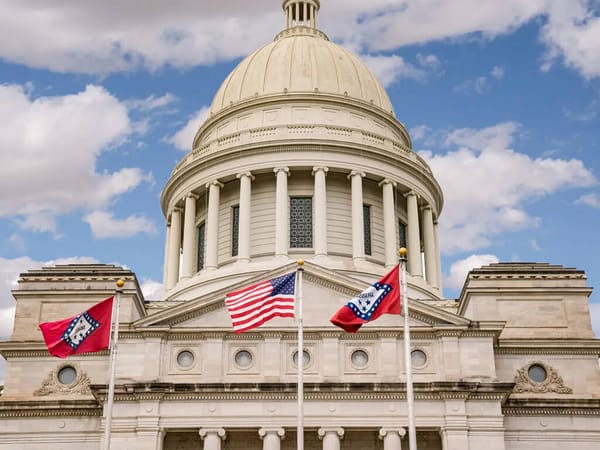Arkansas’s Small Businesses Battle Inflation and Instability
From inflation to the ongoing government shutdown, small businesses in Arkansas are facing mounting challenges. The state is now being urged to introduce more initiatives to provide relief.

As inflation persists and the federal shutdown drags on, Arkansas’s small businesses are facing one of their toughest periods in recent memory. While public attention often focuses on farmers, understandably given agriculture’s deep economic and emotional roots in the state, small businesses, another cornerstone of Arkansas’s economy, are also under mounting strain, though their struggles receive far less attention.
Across the state, small business owners report growing financial pressure. Inflation has steadily eroded profits, and the shutdown has further tightened the squeeze by disrupting federal assistance programs and curbing consumer spending. Many business owners and advocates are now calling on state and federal leaders to introduce immediate relief measures to help keep these enterprises afloat through the downturn.
Businesses in Survival Mode
Many small business owners say they are fighting an uphill battle. Rising costs of labor and materials, driven by inflation, tariffs, and inconsistent national policies, have made it harder to stay competitive. The slowdown in agriculture and other major industries has added more strain, especially in rural areas where businesses depend heavily on farming communities for income and jobs.
Although officials claim the economy is growing, clear signs of a slowdown can be seen in sectors like agriculture and retail. Small businesses, which provide a significant share of the state’s employment, are feeling the squeeze.
Cautious consumers amid unpredictable policies have made the outlook even more uncertain. A KeyBank survey in late July found that 23% of small business owners are still in “survival mode,” unable to plan for the long term. Nearly half (46%) said their performance fell short of expectations in the first half of 2025. Mike Walters, president of business banking at KeyBank, said that navigating the current economic environment has proven to be no small feat for small business owners.
Federal Shutdown Deepens the Strain
The ongoing government shutdown has made it harder for many small businesses to access federal loans. According to a report from the U.S. Small Business Administration, eight small business loans went unapproved during the week of October 21, amounting to more than $5 million in missed funding for Arkansas companies.
The shutdown is also reducing local spending. When government employees miss paychecks, they cut back on purchases, and that directly hurts small businesses. “Who is going to shop when they don’t get paid?” one business owner asked.
Caused by political gridlock, the shutdown has added yet another layer of uncertainty to local economies, with no clear end in sight. Under such pressure, many small businesses are wondering how they can compete with national chains that have far more resources. Some local store owners are even considering closing their doors for good.
Lawmakers Explore Relief Options
On October 27, a small business subcommittee met in Little Rock to discuss the growing challenges facing Arkansas’s small businesses and entrepreneurs. Lawmakers and economic officials also outlined new initiatives aimed at helping these businesses navigate the current economic pressures.
Tracy Steele, a senior Democrat and member of the subcommittee, said the group’s work is far from over. “We really want to see more of our advocates for small business and more of our funding sources collaborate and work together,” Steele said, noting that conversations on how to better support small businesses in Arkansas will continue through the subcommittee.
Esperanza Crane, Director of Small Business and Entrepreneurship Development, said new outreach leads have been hired to strengthen business growth across the state, especially in Northeast and South Arkansas. “Over the past few years, we’ve invested significant time, effort, and funding to build programs that truly support small businesses and entrepreneurs statewide,” Crane said.
Support Programs and the Need for Direct Aid
Arkansas offers several government programs to help small businesses, including the Arkansas Small Business and Technology Development Center, which provides counseling and training, and the Arkansas Economic Development Commission, which manages incentives such as the Tax Back Program and Advantage Arkansas. Other resources include the Arkansas GrantWatch portal, SBA loans, and special programs for women entrepreneurs through the Arkansas Women’s Business Center.
Esperanza Crane highlighted one of the key programs under the Economic Development Commission, Arkansas Innovators Start-Ups and Entrepreneurs (ARISE). “If anybody is a tech-enabled startup, they need to visit ARISE, because it’s free and it will help launch, grow, and scale their business,” Crane said. “This program offers coaching, mentoring, training, and access to capital for tech-enabled startups.”
While these programs are valuable, many business owners say the current economic crisis calls for more direct financial support instead of workshops or training sessions. With federal loans delayed and consumer spending down, small businesses are urging both state and federal leaders to expand aid programs and provide faster access to emergency funding.
As one business owner said, “We don’t need more workshops right now, we need a lifeline.”





